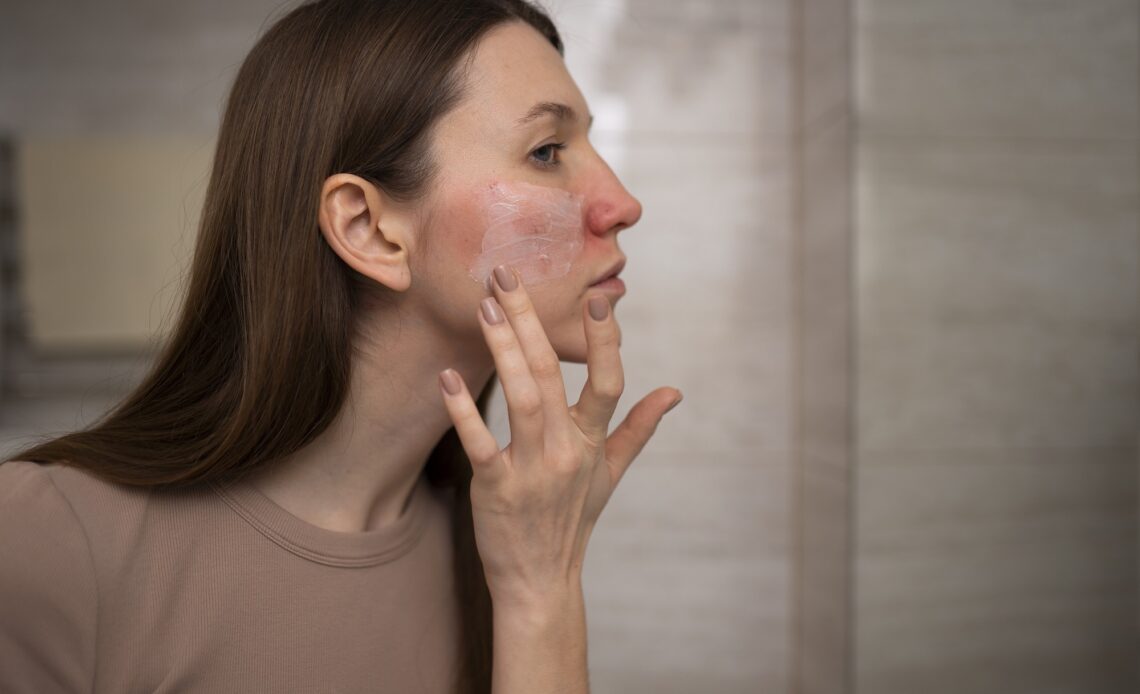What is Skin Barrier Damage?
The skin barrier, often referred to as the stratum corneum, is the outermost layer of your skin. It plays a crucial role in safeguarding against environmental pollutants, bacteria, and moisture loss. When functioning properly, it keeps your skin hydrated and healthy, providing a protective shield against potentially harmful elements. However, when this barrier is compromised, your skin can suffer from dryness, irritation, and increased sensitivity.
Damage occurs when this protective layer is disrupted, leading to skin issues like breakouts, redness, and inflammation. Recognizing the importance of a healthy skin barrier is the first step in maintaining optimal skin health. By understanding the causes and effects of barrier damage, you can implement effective strategies for care and treatment.
Common Causes of Skin Barrier Damage

Over-exfoliation is one of the primary culprits. While exfoliating can help remove dead skin cells, doing it excessively can strip away the natural oils and compromise the skin barrier. Another common cause is the use of harsh skincare products. Many products contain alcohols, fragrances, or sulfates that can irritate and weaken the skin barrier. Always opt for products labeled as “gentle” or “sensitive-skin friendly” to ensure you’re not contributing to barrier damage.
Environmental factors like pollution, UV radiation, and extreme temperatures cause oxidative stress and inflammation, weakening your skin’s defenses. Protective measures such as using sunscreens and air purifiers can bolster your skin’s barrier.
How Skin Barrier Damage Leads to Breakouts and Redness
When your skin barrier is compromised, it becomes less effective at keeping out bacteria and irritants. This can lead to an increase in breakouts as these unwanted substances penetrate the skin more easily, causing inflammation and acne. The weakened barrier also struggles to retain moisture, leading to dry, flaky skin that can exacerbate conditions like eczema and psoriasis.
Redness is another common symptom of a damaged skin barrier. Without the proper protection, the skin becomes more susceptible to irritation from environmental factors and skincare products.
Addressing these issues requires a comprehensive approach that involves repairing the skin barrier and preventing further damage. By focusing on restoring the skin’s natural defenses, you can reduce breakouts and redness, leading to a healthier, more resilient complexion.
Signs and Symptoms of Skin Barrier Damage
Common signs include persistent dryness, flakiness, and itching. Your skin may feel tight or uncomfortable, especially after cleansing. Another symptom to watch for is increased sensitivity. Redness, inflammation, and a burning sensation are indicators that your skin is having difficulty defending itself against external aggressors.
In more severe cases, you may notice frequent breakouts or an increase in skin conditions like eczema or rosacea. These issues often arise when the skin barrier is not doing its job effectively.
Prevention Strategies for Maintaining a Healthy Skin Barrier
Prevent skin barrier damage by choosing gentle skincare products that are free from harsh chemicals and fragrances, as these can irritate and weaken your skin. Use a moisturizer daily that suits your skin type and contains key ingredients like ceramides, hyaluronic acid, and niacinamide to help strengthen and repair the skin’s protective barrier.
In addition to skincare, maintaining healthy lifestyle habits is important. Stay well-hydrated, get adequate sleep, manage stress effectively, and eat a balanced diet rich in antioxidants, omega-3 fatty acids, and essential vitamins to support your skin’s health and natural repair processes.
Treatment and Key Ingredients for Repair Skin Barrier Damage
If your skin barrier is damaged, simplify your skincare routine to reduce irritation and promote recovery. Focus on hydrating and soothing products with key ingredients like:
- Ceramides: Restore the skin barrier and prevent moisture loss.
- Hyaluronic Acid: Attracts moisture to keep skin hydrated and plump.
- Niacinamide: Helps reduce inflammation, redness, and improves skin elasticity.
- Antioxidants (Vitamin C and E): Protect against free radical damage and promote skin repair.
Using products with these ingredients helps repair damage, soothe irritation, and enhance the skin’s natural defenses. For severe or persistent issues, consulting a dermatologist is recommended.

Myths and Misconceptions about Skin Barrier Damage
One common misconception is that oily skin cannot have a damaged barrier. In reality, barrier damage can affect any skin type, including oily skin, leading to issues like irritation and breakouts.
Another myth is that more products and treatments are always better for skin health. Overloading your skin with too many products can actually do more harm than good, overwhelming your skin and leading to barrier disruption.
A third misconception is that natural ingredients are always safe and effective. While many natural ingredients are beneficial, some can be irritating, especially when used in high concentrations. It’s essential to patch test new products and be cautious of natural ingredients that can be potent irritants.
Conclusion
Maintaining a healthy skin barrier is about more than just choosing the right products; it’s about adopting a holistic approach to skincare. This includes being mindful of your environment, lifestyle, and the ingredients in your skincare routine. By understanding the causes and effects of skin barrier damage, you can take proactive steps to protect and repair your skin.
Embrace simplicity and consistency in your skincare routine. Focus on nourishing your skin from the inside out with a balanced diet and adequate hydration. With the right knowledge and approach, you can achieve a healthy, glowing complexion that stands the test of time.


